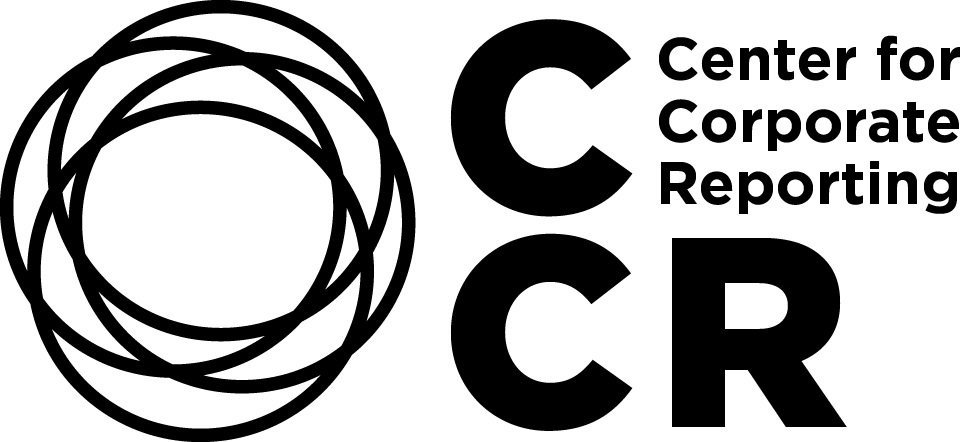Sustainability is at a crossroads. Political pressure, regulatory fatigue, and economic pragmatism are challenging the traditional ESG framework. With rising geopolitical tensions, protectionist policies, and short-term financial incentives dominating decision-making, sustainability is increasingly seen as a bureaucratic burden rather than a strategic advantage. But is this the end of sustainability as we know it, or the dawn of a more dynamic, opportunity-driven approach?
Reporting als Steuerungsinstrument – wie konnte es so ‚weit‘ kommen?
Bereits seit knapp 40 Jahren gibt es in Deutschland keinen Geschäftsbericht mehr – zumindest im juristischen Sinne. Die Inhalte des letztmalig 1965 im Aktienrecht kodifizierten Geschäftsberichts wurden im Zuge der Durchführung der EG-Richtlinien zur Vereinheitlichung der Rechnungslegung in Europa weitgehend übernommen und vor allem auf den (Konzern-)Lagebericht verteilt. Sowohl die Inhalte als auch die Übermittlungsform des Praxisphänomens Geschäftsbericht werden heute – nicht nur in Deutschland – ausschließlich durch die Funktionen bestimmt, die dem Geschäftsbericht in der Praxis zukommen.
ESG-Reporting heute und morgen – eine Standortbestimmung
Der ESG-Report ist einerseits zu einem zentralen Instrument für die Kommunikation mit Anteilseignern, Kunden, Lieferanten, Mitarbeitern und weiteren Stakeholdergruppen geworden. Andererseits gilt er vielen Unternehmen vor dem Hintergrund der regulatorischen Vorgaben schlicht als «Compliance-Übung». Welche primäre Motivation steht also hinter der Veröffentlichung eines ESG-Reports? Welchen Reifegrad haben die Angaben zu Umwelt-, Sozial- und Governance-Themen? Und wie hoch sind die Kosten, die Unternehmen für die Erstellung auf sich nehmen? Eine Umfrage unter grossen europäischen Unternehmen bietet einen Einblick in den Status Quo des ESG-Reportings und zeigt mögliche Entwicklungsszenarien.
Reporting-Perspektiven 2023: Nachhaltigkeit und Finanzen auf Augenhöhe
Wie gestalten börsennotierte Unternehmen aus Deutschland und der Schweiz ihre Geschäfts- und Nachhaltigkeitsberichte? Welche Formate wählen Unternehmen dabei aus? Welche inhaltlichen Akzente setzen sie? Und wie bemühen sie sich um die öffentliche Vermittlung ihres Reportings? Die Studie „Reporting-Perspektiven“ ist die am längsten kontinuierlich durchgeführte Inhaltsanalyse der Berichterstattung in Deutschland und der Schweiz. Untersucht wurden 2023 insgesamt 100 Unternehmen (20 DAX, 15 MDAX & 15 SDAX-Unternehmen, bzw. 20 SMI- & 30 SMIM-Unternehmen).
Navigating the ESG Reporting Technology Landscape
Growing stakeholder expectation, coupled with an increasingly complex and stringent regulatory landscape, has significantly fueled the surge in demand for ESG data management and reporting solutions. By effectively handling vast volumes of data, these solutions not only equip businesses with tools for informed decision-making but also pave the way for fresh avenues of growth and enhanced stakeholder engagement and guarantee audit-readiness and alignment with the applicable regulatory frameworks. However, today’s ESG reporting technology landscape is very crowded and fragmented, making the establishment of a clear taxonomy a challenging task. Learn more about how to navigate the ESG reporting technology landscape in this article.
From the ESG Culture Wars to Focusing on the Issues
Exactly how the acronym of ESG has become the topic of such heated debate will make for a good doctoral dissertation in sociology someday. It has become a term derided on both the left (“it’s not true sustainability”) and the right (“it’s a progressive political agenda”). Putting inflammatory rhetoric aside, it is healthy to have a debate about ESG. What it is and what it isn’t. What it can do and what it can’t do. What it was never intended to do—solve the world’s problems starting with climate change. It is also our view that the term has probably run its full life cycle and it is time to address the underlying issues of what is being debated.
ESG reporting trends in Switzerland, the EU, and the world
Last year’s surge in mandatory ESG reporting requirements was notable for companies operating in the German speaking countries (Switzerland, Germany, Austria): consider the EU’s adoption of the Directive on Corporate Sustainability Reporting (CSRD) and Switzerland’s adoption of the Climate Ordinance. This overview discusses these new reporting requirements and wider trends in ESG reporting.
Putting ESG data at the heart of a company
For the last few years, there has been much focus on Environmental, Social and Governance (ESG) reporting frameworks for investors and the international architecture that supports global reporting. However, focusing only on the needs of investors and regulators risks ignoring the most important users of ESG data, the companies themselves.
Blank ziehen im Sinne der Nachhaltigkeit: Ein Energieversorger macht sich nackig
Verantwortung zu übernehmen ist nicht nur wichtig, wenn man etwas leistet, sondern auch dann, wenn man es (noch) unterlässt. Beides – das Geleistete und das, was noch getan werden muss – beschreibt die WEMAG transparent in ihrem alljährlichen Nachhaltigkeitsbericht. Darin zieht das Unternehmen blank und zeigt von Kopf bis Fuss, was ein ökologischer Energieversorger dazu beitragen kann, den Klimawandel zu bremsen. Erfahren Sie mehr im Interview mit Energie- und Nachhaltigkeitsmanager Julian Höhn.















